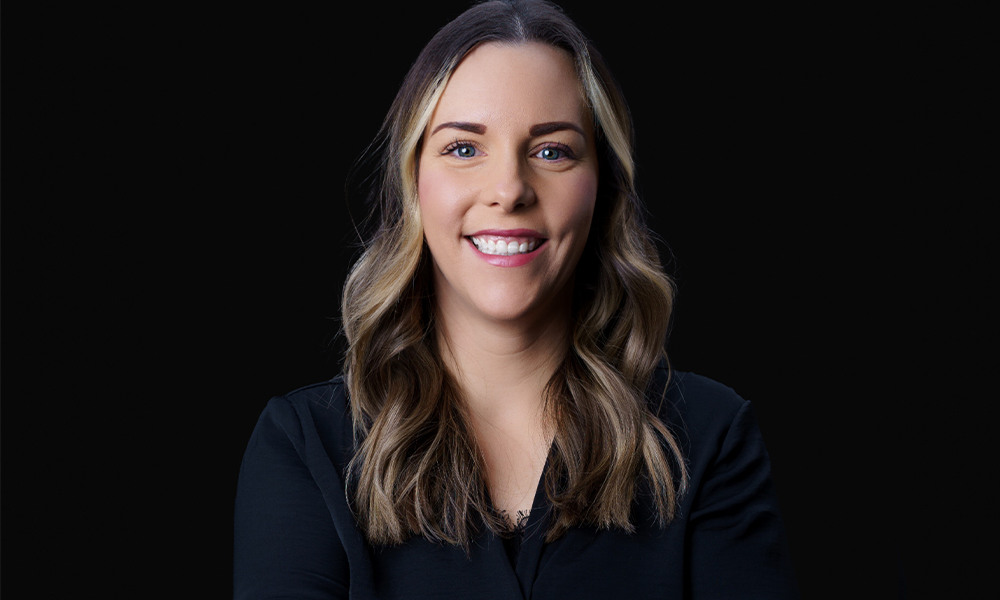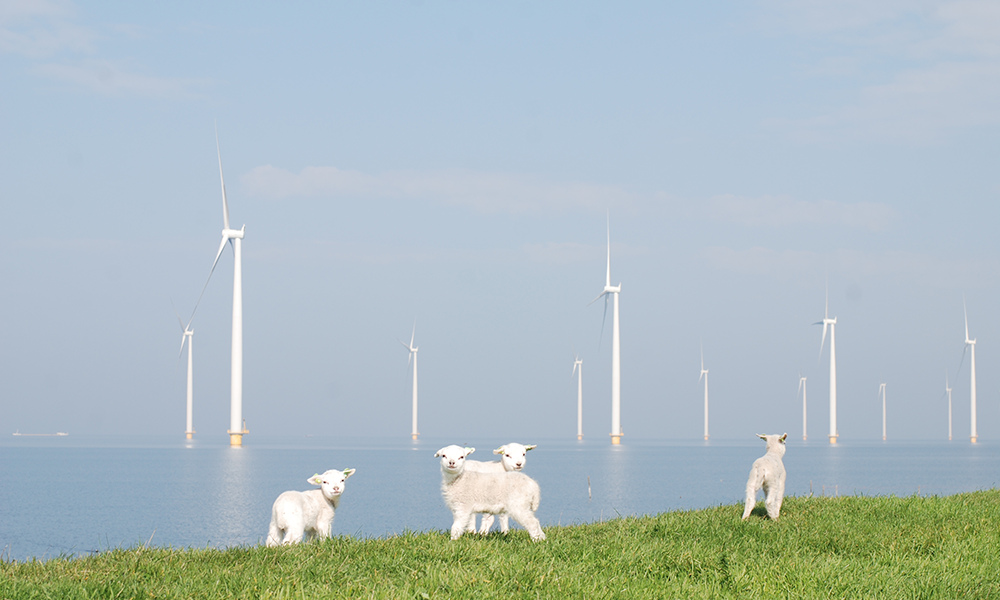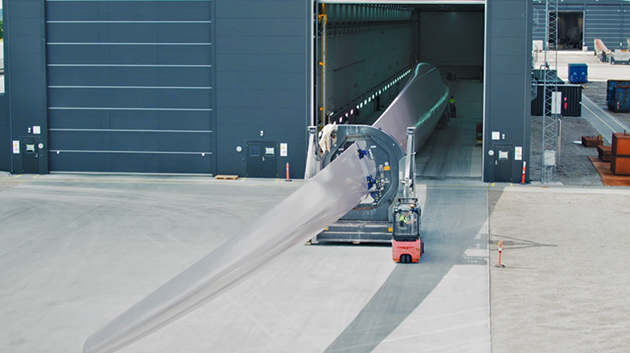
Sustainability is the only way for a better future
Madrid / 2 December 2021
As most of the world’s policymakers and businesses gather at COP26 to discuss action on the climate crisis, Kristen Skelton, Sustainability and Environment Specialist at Siemens Gamesa, shares her perspective on sustainability in the wind industry. In a chat with co-hosts of The Offshore Wind Podcast, David Lenti from Siemens Gamesa and Stewart Mullin from the Global Wind Energy Council, Kristen talks about key developments in sustainability that will shape the industry’s future. Listen to the podcast here.
As most of the world’s policymakers and businesses gather at COP26 to discuss action on the climate crisis, Kristen Skelton, Sustainability and Environment Specialist at Siemens Gamesa, shares her perspective on sustainability in the wind industry. In a chat with co-hosts of The Offshore Wind Podcast, David Lenti from Siemens Gamesa and Stewart Mullin from the Global Wind Energy Council, Kristen talks about key developments in sustainability that will shape the industry’s future. Listen to the podcast here.
Sustainability and sustainable design are coming to the fore
In the last few years, megatrends such as societal awareness, customer push, and global frameworks such as the Paris Agreement and the UN’s Sustainable Development Goals have been shaping the trajectory towards sustainable development. Companies must also live up to reporting frameworks such as the Global Reporting Initiative, the Task Force for Climate-related Disclosures, and the upcoming EU Taxonomy. Further, the increasing appetite by investors in Environmental-, Social-, & Governance(ESG) related funds has prompted us to disclose our sustainability performance in ratings like Dow Jones Sustainability Index. Here, Siemens Gamesa does very well.
Across industries, companies are setting science-based climate reduction targets and making other large environmental commitments. The nature of offshore tenders is also changing with some European markets awarding points for sustainability and ecological criteria. It is no longer just about the cost or technical specifications, but also environmental and social parameters. Customers are also asking increasingly sophisticated questions about how we procure and manufacture our components.

Circularity legislation is driving innovations like the recyclable blade
Increasing focus on legislation around circularity and the reuse of materials has gained traction in the EU. Countries such as Austria, Finland, Germany, and The Netherlands have imposed landfill bans on fiber-reinforced composites. France has recently introduced new environmental legislation that includes obligations for turbine and foundation reusability or recyclability. In response to these events, Siemens Gamesa’s accelerated its roll-out of the RecyclableBlade, which represents the first blade that can be recycled at the end of its useful life.
Our RecyclableBlade project was developed by an exceptional, cross-functional team consisting of colleagues from Siemens Gamesa Technology, Operations, Platform and Portfolio Management, Quality Management & Health, Safety, and Environment, Sales, Service, and Procurement, simply to name a few.
”The development timeframe didn’t take long after the idea was conceived in 2018, which was to the surprise of many”. In cooperation with our supplier, who had already performed initial resin and recyclability tests, Siemens Gamesa carried out its standard qualification process to validate the resin for an 81-meter blade also with support from the Technical University of Denmark.
Our RecyclableBlade project was developed by an exceptional, cross-functional team consisting of colleagues from Siemens Gamesa Technology, Operations, Platform and Portfolio Management, Quality Management & Health, Safety, and Environment, Sales, Service, and Procurement, simply to name a few.
”The development timeframe didn’t take long after the idea was conceived in 2018, which was to the surprise of many”. In cooperation with our supplier, who had already performed initial resin and recyclability tests, Siemens Gamesa carried out its standard qualification process to validate the resin for an 81-meter blade also with support from the Technical University of Denmark.

“Other than the resin itself, the product quality, strength, reliability, blade warranties, safety, service and maintenance remain the same,” she adds. “The only difference is that the materials can be recovered and recycled at the end of useful life as a blade.” After decommissioning, the blades can be immersed in a mildly acidic solution with an elevated temperature, where the resin dissolves in a few hours and the separated components including glass fiber can be reclaimed and used in other applications such as insulation and reinforcements.
Thanks to our pioneering RecyclableBlade technology, the materials from our RecyclableBlade can be recycled and reused in other industries to the benefit of future generations. A groundbreaking step towards creating a waste-free future for the wind industry.
The sustainability journey that’s far from complete
Sustainability comprises environmental, social and corporate governance and includes targets on carbon emissions, value chain emissions, product recyclability and on the social side, health and safety, diversity in the workforce, code of conduct, and risk management processes. There are always continuous internal and external developments that require companies to gauge and refocus.
Siemens Gamesa is walking the sustainability talk. Its decarbonization program has led to it becoming carbon neutral in 2019, ahead of schedule, and the company will be net positive by 2040. Last year, the company also evaluated actual climate risks and opportunities in relation to its business and risk management processes. This project included a materiality assessment, scenario analysis and financial impact assessment for 10 key countries chosen based on the location of the company’s assets including its manufacturing and assembly locations.

To move forward, the industry must work together
There is a lot of cross-industry engagement ongoing around topics like supply chain sustainability, recyclable blades and decommissioning. WindEurope’s sustainability working group includes customers, competitors, suppliers and the national energy associations, where everyone sets aside competitive elements to work on the agreed upon annual program for the industry’s best interests.
Another initiative is the Offshore Coalition for Energy and Nature, a newly formed group under the Renewable Grids Initiative. “We’re looking to support our customers on the sustainable deployment of offshore wind while protecting nature including marine ecosystems,” concludes Kristen.
Another initiative is the Offshore Coalition for Energy and Nature, a newly formed group under the Renewable Grids Initiative. “We’re looking to support our customers on the sustainable deployment of offshore wind while protecting nature including marine ecosystems,” concludes Kristen.



